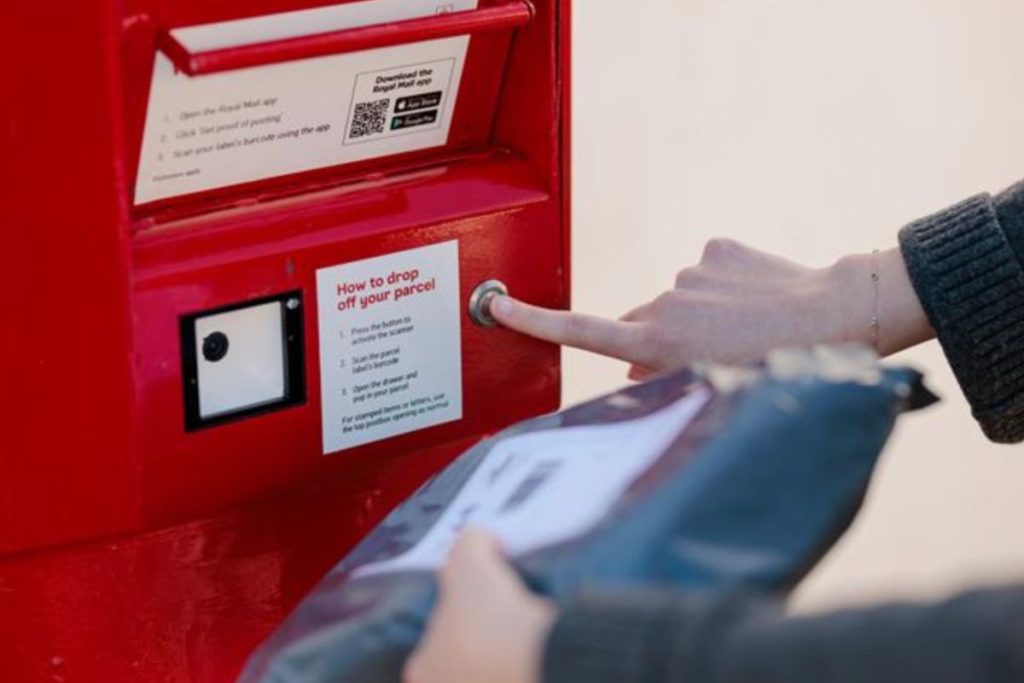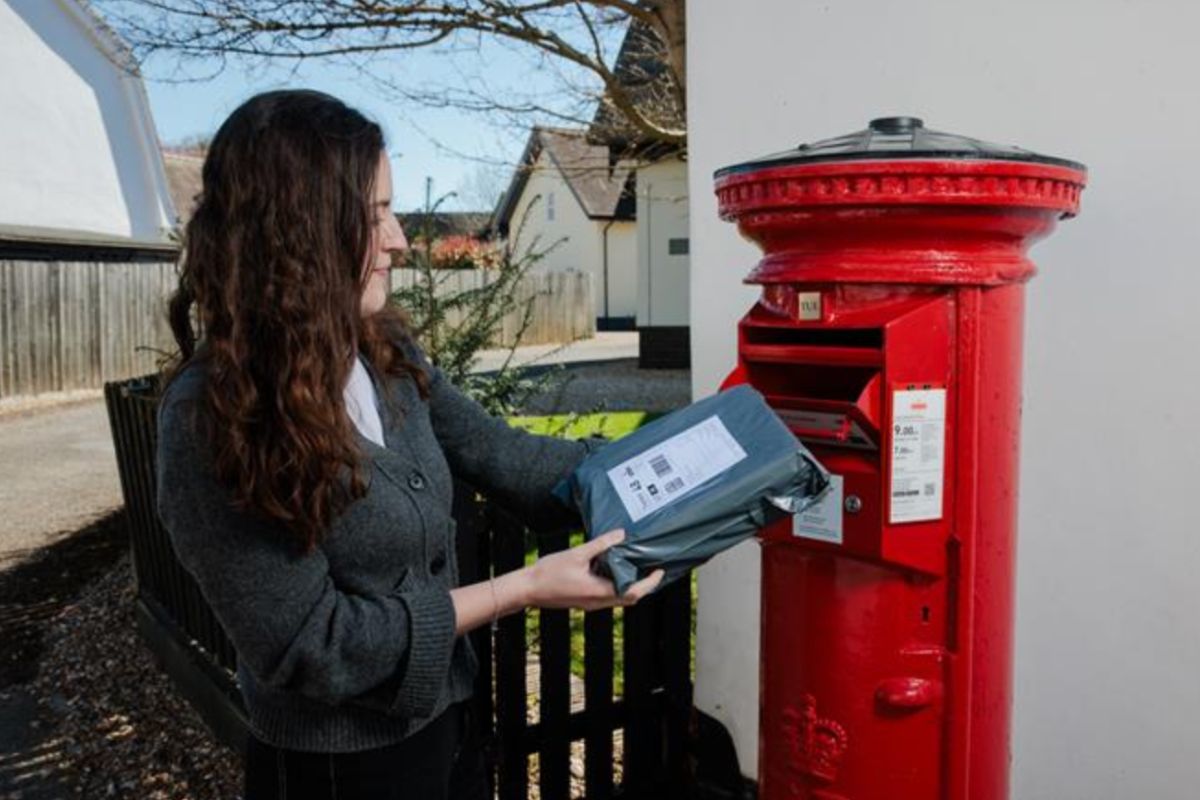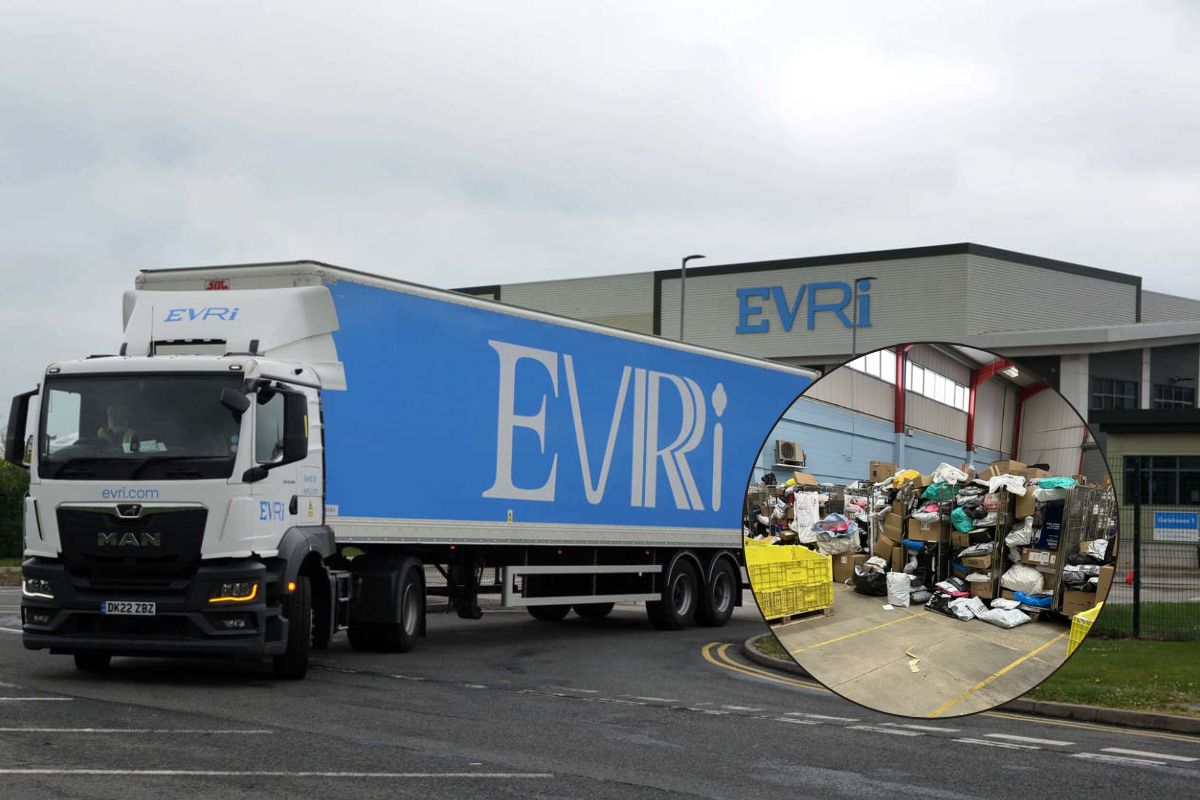Britain’s iconic red postboxes are getting their biggest makeover in 175 years – and for once, it might actually be a change worth celebrating.
Royal Mail has unveiled solar-powered “postboxes of the future” with built-in barcode readers and extra-large hatches specifically designed for parcels, potentially revolutionising how we ship our unwanted clothes and marketplace purchases.
Berets for Postboxes: The Key Changes to Postboxes
The new postboxes look like they’re wearing what The Guardian aptly described as “jaunty berets” – black, chequered lids that are actually solar panels powering the built-in barcode scanners.
When customers scan their pre-paid, barcoded parcels, a drawer automatically opens to accept packages too large for traditional letter slots.
Currently being trialed in just five locations across Hertfordshire and Cambridgeshire (Ware, Hertford, and Fowlmere), Royal Mail plans to retrofit “thousands” of the UK’s 115,000 existing postboxes if the pilot proves successful.
Emma Gilthorpe, Royal Mail’s chief executive, called the initiative “a new lease of life on street corners across the nation,” which, given the company’s recent struggles, is probably the kind of fresh air it desperately needs.
Why This Actually Matters: From Letters to Parcels
This isn’t just Royal Mail tinkering with a beloved design for the sake of it. The reality is that Britain’s postal habits have undergone a seismic shift.
Twenty years ago, Royal Mail was delivering a staggering 20 billion letters annually. Today, that figure has collapsed to just 6.6 billion, with projections suggesting it could plummet further to 4 billion within the next few years.
Meanwhile, the parcel business is absolutely booming. Around 24 million Britons are now using online secondhand selling platforms, with one in five increasing their use of secondhand shopping apps in late 2024 alone.
Sites like Vinted have created an entirely new economy of casual sellers who need reliable, convenient ways to ship their preloved items without the faff of queuing at the Post Office.
Until now, many of these sellers have been forced to rely on notoriously unreliable carriers like Evri (formerly Hermes) and Yodel – companies who operate out of local cornershops and whose reputations for “losing” parcels have become the stuff of internet legend.
A Desperately Needed Alternative to the Usual Suspects
For consumers who’ve had one too many “sorry we missed you” cards from couriers who never actually knocked, or sellers who’ve been left out of pocket after Evri mysteriously “delivered” a package that never arrived, these upgraded postboxes could provide a welcome alternative.
Royal Mail’s traditional strengths – its universal coverage and generally reliable service – combined with the convenience of drop-off points that don’t require human interaction could finally give Evri and Yodel a run for their money in the casual seller market.
The ability to get proof of posting through the Royal Mail app is particularly significant for marketplace sellers, who often find themselves at the mercy of buyers claiming items never arrived.
Now, they can drop off parcels 24/7 and still have evidence they held up their end of the bargain.

Following InPost’s Lead as Out-of-Home Delivery Booms
Royal Mail isn’t exactly breaking new ground here. InPost, the Polish parcel locker company, has been absolutely crushing it in the UK with its network of automated parcel lockers.
The company doubled its UK deliveries to a whopping 93 million in 2024 and expanded its out-of-home delivery network to more than 13,000 points across the country.
InPost’s success – growing its UK locker network by almost 3,000 machines to 9,200 in just one year – shows the massive appetite for convenient, automated shipping options.
The company is now in the process of acquiring the troubled courier Yodel, which would make it the UK’s third-largest independent delivery provider.
Royal Mail’s move suggests it’s finally waking up to the fact that the future of deliveries isn’t just about getting items to people’s homes – it’s also about providing flexible, accessible options for sending them in the first place.
Kretinsky’s First Move in the Royal Mail Takeover?
This postbox revolution comes at a pivotal moment for Royal Mail. The 508-year-old postal service is on the verge of falling into foreign hands for the first time in its history, with Czech billionaire Daniel Kretinsky’s £3.6 billion takeover expected to complete by the end of April.
With Royal Mail set to be saddled with around £5 billion in debt after the deal, the pressure to make the business profitable has never been greater.
Kretinsky’s track record with the Dutch postal service PostNL – which recently admitted its current business model is “no longer sustainable” – doesn’t exactly inspire confidence.
These new postboxes could be seen as a desperate attempt to make Royal Mail relevant again in a market it once dominated.
By transforming postboxes from increasingly obsolete letter receptacles into genuinely useful parcel points, the company might just find a way to stay in the delivery game.
Will It Save Royal Mail or Just Delay the Inevitable?
Whether these high-tech changes to postboxes will be enough to secure Royal Mail’s future remains to be seen.
Critics will point out that five trial boxes is hardly a revolutionary overhaul, and that competitors like InPost are already miles ahead with their purpose-built locker networks.
But for consumers fed up with Evri’s notorious service issues and Yodel’s delivery woes, any alternative that leverages Royal Mail’s existing infrastructure could be welcome news.
The universal service obligation means there’s a postbox within half a mile of 98% of UK addresses – far more accessible than any competitor’s network.
If Royal Mail can successfully transform even a fraction of these into parcel-ready delivery points while maintaining its reliability edge, it might just deliver itself from irrelevance.
And for once, that’s a package we might actually receive.
Search for more information on essential services and delivery companies in our couriers section or check our retailer guides to see which delivery companies your favourite shops are using.




